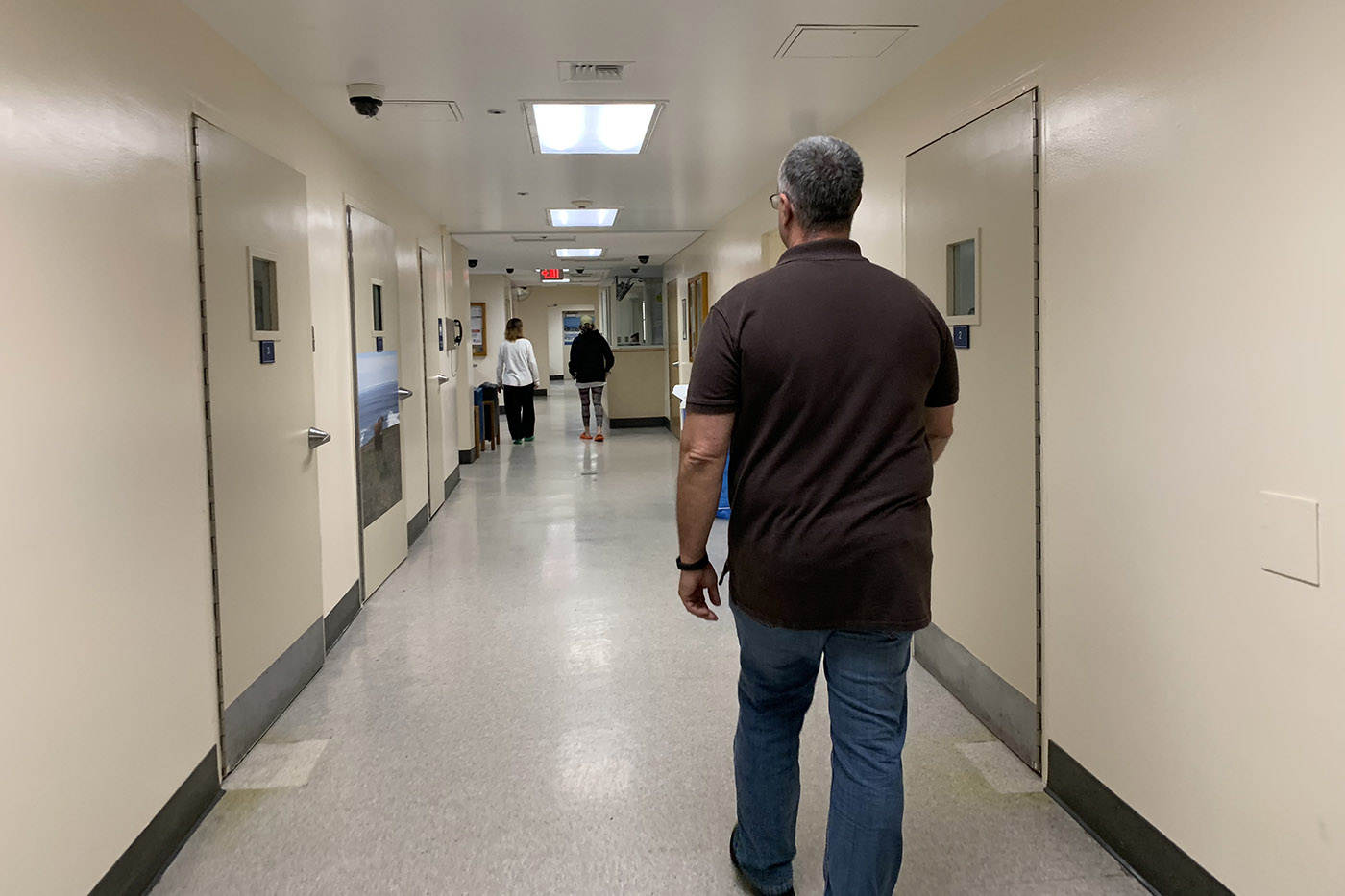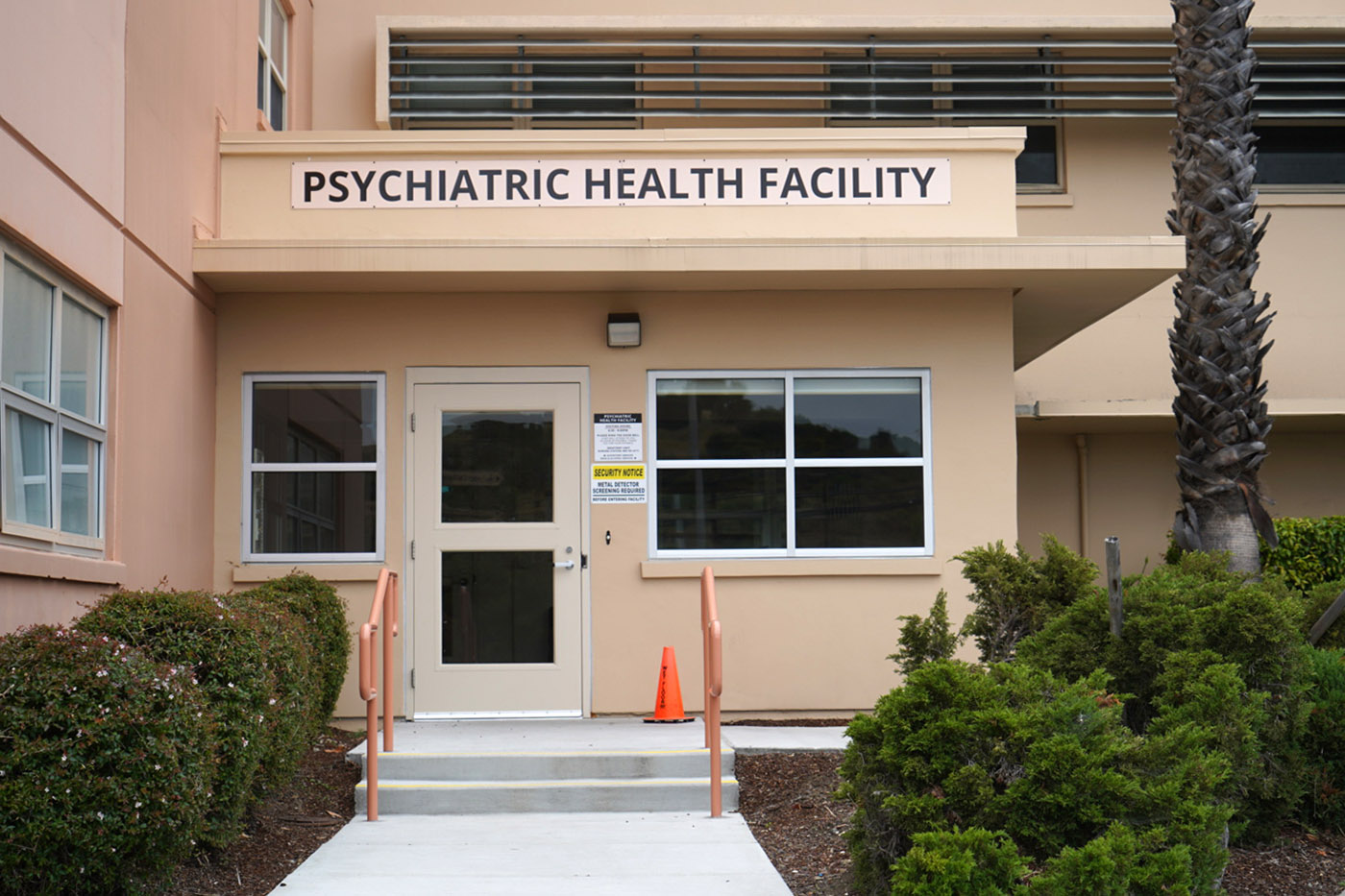In San Luis Obispo County, there are more than 280,000 residents. Yet, there are only 16 hospital beds for those who have a serious crisis, according to San Luis Obispo Behavioral Health Supervisor Brian Atwell.
One in five people will be affected by mental health in their lifetime, according to National Alliance of Mental Illness.
San Luis Obispo is about 150 beds short of the adequate treatment options locally, meaning people must transfer out of the county to the nearest bed.
“I don’t think our crisis services are adequate enough,” Atwell said. “We have two people countywide 24-7 to respond from Nipomo to San Miguel and there may be times where we have eight crisis contacts throughout the county, and two people really just isn’t enough.”
“We have two people countywide 24-7 to respond … and two people really just isn’t enough.”
Atwell works directly with patients at the Psychiatric Health Facility (PHF), an inpatient psychiatric unit at the San Luis Obispo Health Agency under the Behavioral Health Department. The Health Agency has other departments, including behavioral health, which consists of mental health, drug and alcohol services, public health and animal services.
The PHF is the receiving facility for all 5150s in San Luis Obispo County. In California, a “5150” is the code used to describe a temporary, involuntary psychiatric commitment of individuals who present a danger to themselves or others due to signs of mental illness.
“What that 5150 application is doing is saying, ‘We’re going to put you in a locked facility and take your rights away for 72 hours, and we’re going to help you stabilize,’” San Luis Obispo Police Department and Transitions-Mental Health Association (THMA) social worker John Klevins said.
The PHF is the designated facility for the Office of the Public Guardian, which is appointed by local courts to be the guardian for individuals who are unable to care for themselves due to a mental disorder.
However, they are limited in size to only 16 beds, due to their licensing mandate under the Department of Health Care Services. In order to expand, they would need a full working kitchen and personnel.
Additionally, the PHF’s mandate is geared toward individuals with free or low-cost Medi-Cal insurance only or no health insurance whatsoever.
“People with private insurance, their insurance is actually mandated to find them a suitable mental health treatment facility, and unfortunately in our county, there are zero,” Atwell said. “We have none.”

The closest inpatient mental health facility for individuals with private insurance is Vista del Mar in Bakersfield. Santa Barbara Cottage Hospital is closer but will not accept 5150s unless a patient has insurance and is willing to go voluntarily, without being on a 72-hour hold. Other facilities for 5150s for patients with insurance include Good Samaritan in Bakersfield as well as facilities in Salinas and San Jose. PHF will transfer people as far as Santa Rosa, San Francisco, Sacramento, Roseville, San Diego, Newport Beach and Los Angeles.
The PHF is not a medical facility, meaning they do not have medical doctors and medical staff in-house 24-7.
The facility avoids admitting minors because the medical team only sees all the patients once a day. Patients are essentially losing a day of treatment. It is best for them to be seen at an actual medical facility to do a medical screening and assessment, according to Atwell.
Ultimately, for mental health crises, it is the doctor or psychiatrist whose name is put on the 5150 who has the ability to make decisions, whether that is rescinding a hold or discharging patients.
Aside from law enforcement, Anne Robin is the only person in the county who can designate people to write 5150s. She has designated county staff, county partners and law enforcement. Doctors from outside hospitals would need to call for evaluation by the Medical Health Evaluation Team (MHET).
Although Cal Poly Health Services does not have the facilities to accept 5150s, some students say the Health Center is a good first step.
Counseling Services offers same day appointments from 11 a.m. to 4 p.m. for anyone who feels they are in a crisis and cannot wait for a future appointment, according to University Spokesperson Matt Lazier. For non-emergency situations, students report that scheduling an appointment can take up to three weeks.
“When you feel anxiety, you feel it in that moment and you kind of need to talk to somebody in that moment,” construction management junior Kian Kemp said. “Talking to [a therapist] three weeks [later] about how you felt about that moment I don’t really see as too productive.”
“Talking to [a therapist] three weeks [later] about how you felt about that moment I don’t really see as too productive”
Cal Poly typically provides three private sessions for mental health or group workshops before referring a student to outside resources. However, many students receive long-term services at Counseling Services, though these are currently reserved for students who have more severe symptoms and mental health histories, according to Lazier. They hope to offer longer-term services for more students than those with serious symptoms as the quarterly $99 health fee takes effect with each incoming class.
“The stigma is just so surrounded by the fact that it’s such a hard topic to talk about, no one wants to really admit that they struggle to get out of bed in the morning or that things are hard,” history junior Mckenzie Leeds said.
Active Minds is a club on campus geared toward mental health awareness. Leeds is co-president of the club, which operates on campus, teaming up with Campus Health and Wellbeing and Associated Students, Inc. (ASI). It is also a national organization and raises awareness off-campus, working with NAMI and THMA.
“I’m passionate about mental health because I’ve definitely experience my own mental health concerns and then I have seen how it affects so many people in my life that I’ve just decided that I never want someone to feel like they’re alone,” Leeds said.
Steps toward mental health improvements
According to the San Luis Obispo Police Department’s (SLOPD) annual crime report, San Luis Obispo saw a 31 percent decrease in the number of mental health services calls and a 7 percent decrease in the number of patients transported in 2018.
SLOPD has also trained 100 percent of the staff in mental health intervention to have more tools and better communication with people in crisis.
“There is a position such as mine that is putting a police officer and social worker together,” Klevins said. “Think about that 20 years ago, would you have ever thought that a social worker would be part of the police force?”
“There is a position such as mine that is putting a police officer and social worker together”
At the campus level, Cal Poly hired three early intervention specialists this year in hopes to preemptively help students before mental health issues develop, according to a previous Mustang News interview with Assistant Vice President for Student Affairs Health and Wellbeing Tina Hadaway-Mellis.
“There are really great people in a lot of positions in this town, both at the county [and] at the state level,” Klevins said. “We’ve got folks at the city level. There’s a lot of attention to this … we’ve got a system, a good system in place. Could it be better? Yes, it can always be made better.”
For students who need to speak with somebody right away, Counseling Services’ after-hours crisis line can be reached by calling Counseling Services’ main phone number (805) 756-2511.
This story was updated with additional information about Cal Poly Health Services. The story has been corrected to state 28,000 residents may be dealing with mental illness.

